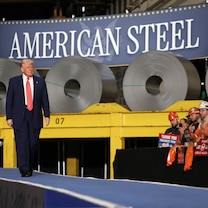Corporations Use $20 Billion Legal Tax Loophole
Experts say "transfer pricing" costs the Treasury over $20 billion a year.
August 18, 2008— -- As the economy threatens to fall into a recession and an increasing number of Americans are struggling to make ends meet, many corporations are drastically reducing their tax liability to the federal government through a perfectly legal practice known as transfer pricing, costing the Treasury more than $20 billion a year.
"Large corporations don't hide income, but they might engage in very sophisticated transactions that reduce their tax liability in ways that aren't appropriate," said Eric Toder, a senior fellow at the Urban Institute who focuses on taxes and retirement.
One such loophole that corporations are likely exploiting, says Toder, is transfer pricing, or prices charged for items or services within groups of the same company. Multinational companies commonly sell assets to overseas subsidiaries in low-tax countries to reduce taxable profits in the United States and increase them in the countries with lower tax rates. For tax purposes, these groups are all treated as separate companies.
"If a U.S. firm is purchasing a product from their foreign subsidiary, then they've moved potential U.S. profit to their offshore subsidiary," said Mike Brostek of the Government Accountability Office.
The GAO released a report just last week revealing that three percent of large US corporations – defined as having more than $50 million in gross receipts or $250 million in assets – paid no tax to the federal government for all eight years analyzed, raising, but not answering questions on how these corporations are legally evading Uncle Sam. While the report briefly alluded to a transfer pricing problem existing, it did not elaborate on the subject or specify which firms might be engaging in the practice.
Firms often overpay for products to hold more income off-shore and deduct the expenses on their U.S. tax returns.
Since there is no market test for what goods or services should cost, it is nearly impossible to assess how much money is being moved off-shore, and therefore how much taxable income is ending up somewhere other than the Treasury.



